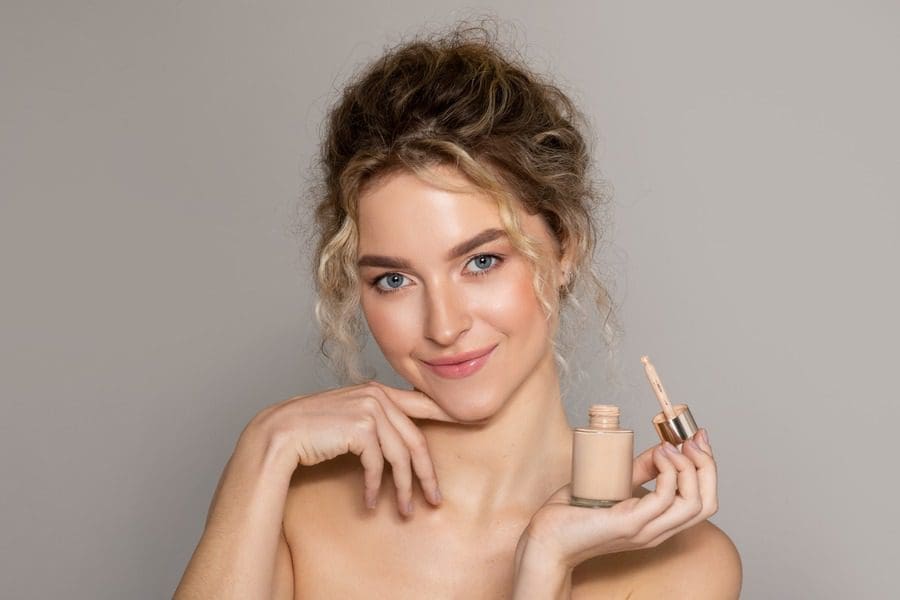Foundation is the base layer of makeup that covers breakouts, evens skin tone, and leaves you with a glowing finish. But finding the right formula for your skin can be frustrating. There are hundreds of brands and shades to choose from, and it can be daunting not knowing where to start! Keep reading for tips on selecting the perfect foundation shade for your skin.
Figure Out Your Skin Type
Type and tone are two completely different sectors of the makeup world; we’ll get to tone later. For now, let’s focus on type. Do you have health issues like eczema? Does your skin produce too much oil or flake off because it’s too dry? Are areas of your face dull, dehydrated, or sensitive? These are solid questions to ask before committing to a foundation. You’ll want to narrow in on your concerns to ensure you choose a product that meets your needs.
Know Your Tone
After type comes tone. To pick the right foundation color, you’ll need to be aware of your natural complexion. That means determining whether your skin is fair, light, medium, or deep. Different areas of your face may be different tones, so it’s best to focus on the skin around your jawline. This natural flush will steer you in the right direction.
Don’t Forget About Your Undertones
The colors beneath your skin’s surface will determine how your foundation looks. That means you need to know your undertones. How? Look at the inside of your wrist. A neutral undertone will be present if you have blue veins, meaning cool and warm shades will work well with your complexion. If you have purple veins, you likely have a pink tint and cool undertones. If you have more green veins, you have warm undertones, and your skin has more of a golden appearance. What’s the takeaway here? Choose a foundation with the same undertones as your skin.
Determine How Much Coverage You Need
First comes the foundation shade, then comes the foundation coverage. Most makeup professionals suggest starting with a sheer foundation with light to medium coverage. This will allow you to keep it minimal or build it up.
If you need a longer-lasting foundation, opt for a full-coverage formula. This is best for covering acne, discoloration, and everything in between. Plus, you won’t have to touch up throughout the day.
Update Your Foundation Each Season
The foundation you use in the summer may not be applicable in winter. That’s why updating your foundation with the seasons is super important. Remember that your undertone will likely remain the same, but the foundation shade will need to be altered. Save the shades with a label for the season in a cool, dry place!







